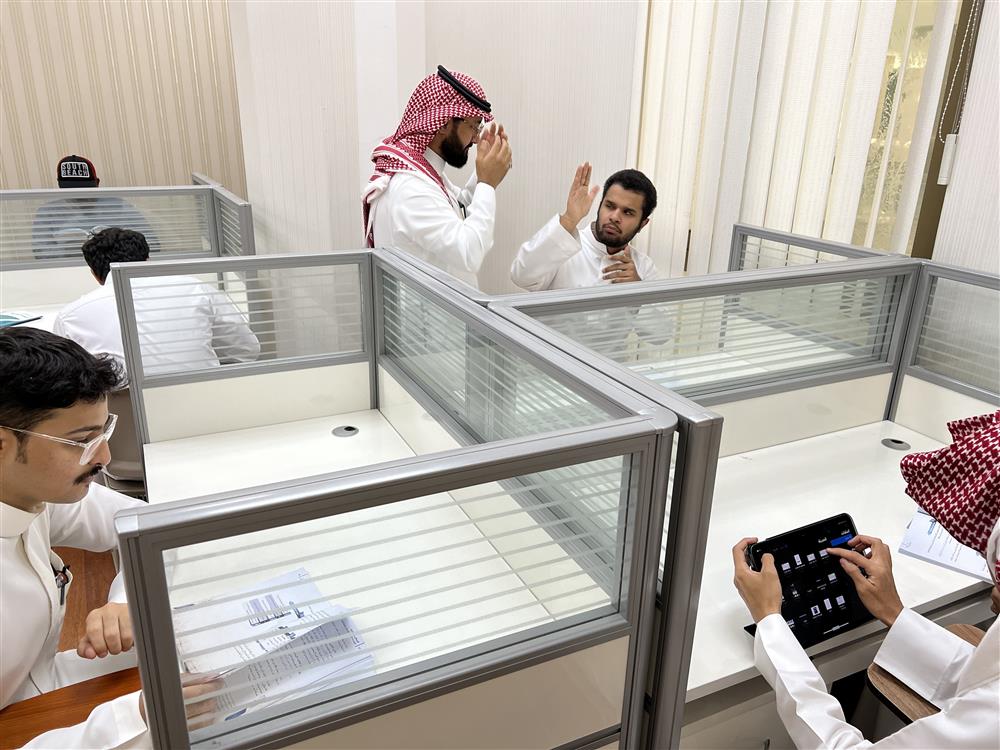Inclusion of deaf students in higher education
- Solution
- We “Hear” You!
- Country of Implementation
- Saudi Arabia
- Start Year
- 2018
- First published
- 03.12.2023

Solution details
“We are working hard to make KAU accessible for everyone.” Prof. Hana Abdullah Al- Nuaim, President, King Abdulaziz University
King Abdulaziz University (KAU), based in Jeddah, developed the project We ‘Hear’ You! to improve the Arabic language skills of deaf and hard of hearing students wishing to enrol in KAU. Started in 2018, the intensive language programme provides students with accessible study materials, lasts for up to two years, and ends with a comprehensive test. Between 2018 and 2023 the admission of deaf and hard of hearing students has grown from 18 to 100 within the programmes of fashion design and digital media.
Problems Targeted
Deaf students experience very poor language preparation skills at most regular schools, thus hindering their chance for university admission.
Solution, Innovation and Impact
KAU has established We “Hear” You!, a preparatory year for students who are deaf or hard of hearing to promote their Arabic language skills, from elementary school level to a university level in one year. The program consists of an intensive language preparation program, the preparation for the university environment to accommodate the culture of people who are deaf or hard of hearing, and additional support services such as sign language interpreters. From 2018 to 2023, more than 100 deaf and hard of hearing students were admitted to KAU. 15 sign languages interpreters provide their services, and Saudi Sign Language has been adopted as a language for the deaf in the university system at King Abdulaziz University. The preparations to accept deaf students took three years of planning. KAU started by hiring qualified persons in deaf education. Several committees were formed to research specific aspects such as students’ background, acceptance criteria, textbooks, and university environment. For example, KAU has created 13 textbooks for the intensive Arabic language curriculum. Students were able to study in the field of fashion design, and the first group graduated in the summer of 2023. In 2023, KAU has started another specialization in Digital Media and plans to add new specializations every two to three years.
Funding, Outlook and Transferability
KAU is a public university funded by the government, and all funding for the programme is provided by the Ministry of Education. Students with disabilities receive a monthly allowance from the government to encourage them to pursue higher education and not to depend on social services. KAU is considered a leading university in disability inclusion in the Middle East and North Africa region, and its innovations are often reviewed by other universities. Following the KAU model, Taibah University, Madinah, also in Saudi Arabia, scaled the programme earlier in 2023. (Awardee 2024)
Media
Pictures
Related information
- Connections
- 1
-
People